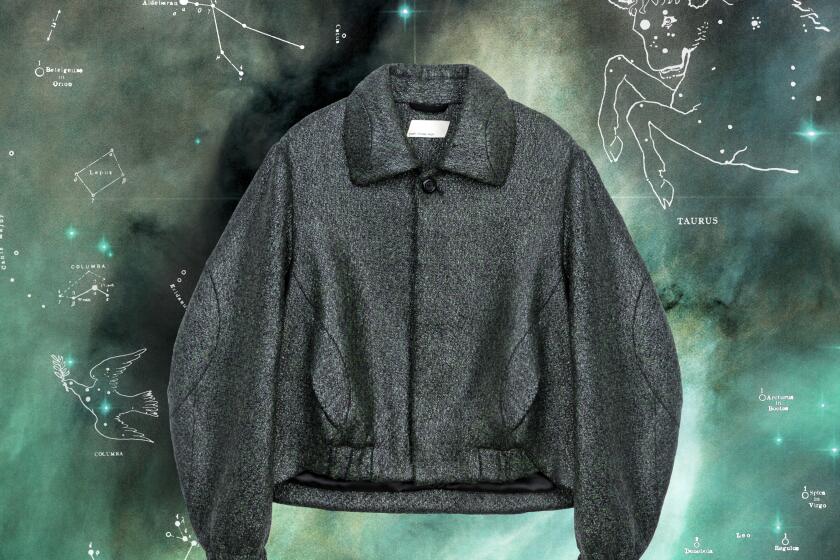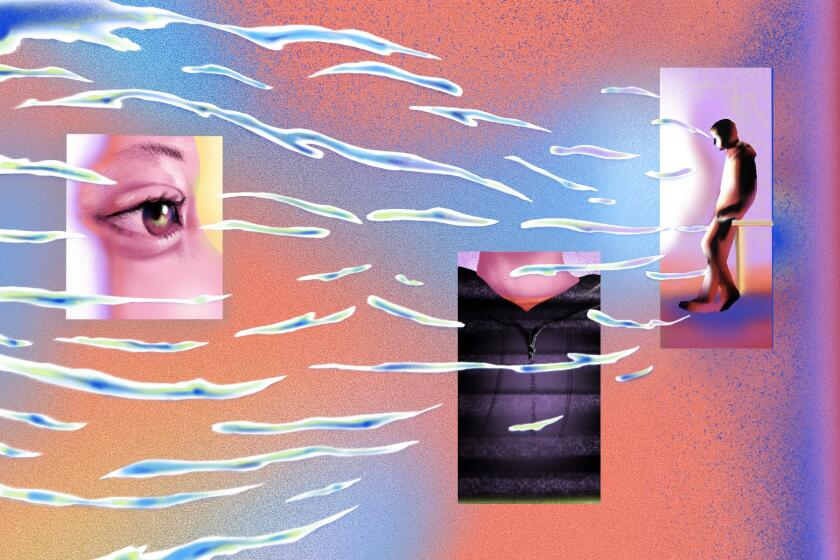M.I.A. can be found in Bed-Stuy (and soon at Coachella)
BY train, the Bedford-Stuyvesant section of Brooklyn is five stops from the suits and ties of Lower Manhattan and 14 stops from the tourists of Times Square. Some of the streets are lined with trees and brownstones, others with abandoned buildings and shady convenience stores.
Easy to find here are Arabic pastries, African clothing and discounted packs of socks and T-shirts. There are multiple mosques, and a mural of Malcolm X with the words, “Stand for Something or Fall for Anything.” Once called America’s largest ghetto -- the local motto was “Do or Die” -- the neighborhood is now known for its ethnic diversity and hip-hop influence (Jay-Z, Lil’ Kim and the late Biggie Smalls came from these parts).
It’s a setting that suits the eclectic mind of Maya Arulpragasam, better known as M.I.A. She’s the widely acclaimed London-born, Sri Lankan-bred rapper who could be the poster child for the wildly diverse Coachella Valley Music & Arts Festival (where she performs Saturday) and the sensibilities-on-shuffle generation for which its lineup is tailored.
M.I.A. remains a British citizen but is now a renter in New York; she’s had a place in Bed-Stuy since 2005. When she moved here from London, friends of Kanye West reportedly told her it was too far into the ‘hood and asked, “Don’t you wanna be able to get a cup of coffee in the morning?”
On a sunny Wednesday morning, though, M.I.A. is at a coffee shop. It’s a quaint little dive with exposed brick and jazz rhythms that compete with the hissing of an espresso machine. M.I.A. tells us about her last few days. She’s been sick. She witnessed a police incident. She listened to “Kala,” her raved-about sophomore album, for the very first time.
She explains:
TUESDAY
M.I.A. is home with flu. She hears commotion on the street, parts her blinds and reaches for a video camera. Within her lens she captures a pair of white cops with their hands on a black man. Shielded in part by a maroon SUV, the three struggle. The apprehended man then gets hit and sprayed with mace.
Later, she takes the camera outside to interview a bystander who’s simultaneously handing information to another cop. “It’s not like it’s something new,” the man says of the incident -- just before he snaps at the cop in response to something inaudible he just said.
According to M.I.A., an officer will later knock on her door and ask for both a statement and the video. She gives the statement but refuses to hand over the footage. Instead, she makes copies for neighbors and posts it on YouTube. The footage elicits dozens of comments debating the force used in the arrest, both on YouTube as well as on BrooklynVegan.com, a New York music blog. On BrooklynVegan, someone also posts: “She don’t live in no BedStuy.”
But she does, and happily. Manhattan, she says, is “like one big shop” that just makes her want to buy things, and she’d rather stay home, visit the bar downstairs or do primitive things that better speak to her nature. For example, she recently made hair conditioner out of hibiscus leaves, a lesson she learned from her grandmother.
“I’ve been in New York City for a month, and that’s the longest I’ve put my feet down anywhere since 2004,” she says. “So there’s loads of things going on in my head that I haven’t felt for years, like just being able to wake up and have my tea, or just sort of feeling connected somewhere [and], you know, feel part of a community. That’s really important to me.”
An impending problem, though, is that her current visa expires in a month and then “I’m gonna be kicked out again.” Until then, there are tour dates to hit and information to “process” -- maybe or maybe not for a third album.
As for M.I.A.’s fascinating journey to music, the abridged version is this: As a child she lived with her seamstress mother in dilapidated homes both in Sri Lanka and India while her father, whom she barely saw, fought for the Tamil Tigers, guerrillas who opposed Sri Lanka’s ruling Sinhalese majority.
At age 10 she fled with her mother and sister to London, gaining refugee status, and a dozen years later graduated with a fine arts degree in the same week that her cousin, who had also joined the Tigers, died of mysterious circumstances back in Sri Lanka.
After visiting the tear-shaped island of her past, M.I.A. returned to London and in 2001 was introduced to Justine Frischmann of rock band Elastica, who eventually led M.I.A. to the Roland MC-505 Groovebox, a drum and keyboard machine.
“I felt really awkward by it and I was just, like, really apologetic that it didn’t sound like anything else,” she says of the music she made with it. “I was like, ‘I’m really sorry -- this isn’t, like, music music. It’s, like, something else.’ ”
That something else soon found places to go. Friends were impressed, samples were shared by both club DJs and Internet surfers, and then in 2005, “Arular” -- an album that matched her hip-hop and dance beats with lyrics that touched on poverty and war -- was released in the U.S. to substantial buzz. M.I.A. played Coachella that year, after which some big names came calling, eager to collaborate.
Among them was Grammy winner Timbaland, who signed on to produce her follow-up. But when the feds denied M.I.A. a U.S. visa renewal, she instead traveled the world and recorded it too -- at times with little more than a laptop and a microphone, she sampled drums from an Indian temple, rhymes from a Nigerian rapper and rhythms from the island of Trinidad, among other things. An album was born.
“Completely trusting in fate, coincidence, instincts,” M.I.A. says, “I walked down the street, I ran into someone [and] they were on my album.” With producers she layered the tracks, chiseled them down and handed them over to Interscope Records.
Last August, “Kala” was released and a media love fest ensued -- it made Best of 2007 lists everywhere, and Rolling Stone and Blender each named it album of the year.
As for M.I.A.’s take, well, that leads us back just one more day:
MONDAY
She pieced the songs together in a studio and performed them live on a subsequent tour, but today marks the very first time that M.I.A. actually unwraps her own CD and listens to it from beginning to end. She’s sick in the apartment. Her boyfriend of four months is over for a visit.
“It was just awkward,” she says, recalling her reaction. “It was horrible to listen to sonically, it was really cheap, and it already comes sounding like it’s a bad bootleg copy.” Here she laughs, then presses on. “And, you know, it’s just like vomit. It’s, like, third-world, malaria vomit.”
She chuckles again. “Now that that’s over,” she says, reaching for the right words, “I’m back to sort of . . . I’m here. And the truth of the matter is I am in the West [now], and that, you know . . . I think the next bit has to be about, like, how everybody’s just finding ways to survive what’s good for, like, each individual. . . . I wanna get back to music on my next album.”
She’s asked to further explain, in the simplest of terms. But M.I.A. just doesn’t do simple, and in a Bed-Stuy coffee shop she thinks for a moment and says with a smirk, “Yeah, I don’t really know.”
More to Read
Sign up for our L.A. Times Plants newsletter
At the start of each month, get a roundup of upcoming plant-related activities and events in Southern California, along with links to tips and articles you may have missed.
You may occasionally receive promotional content from the Los Angeles Times.






